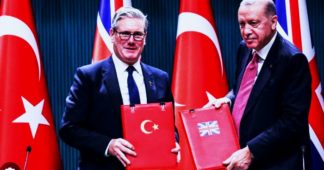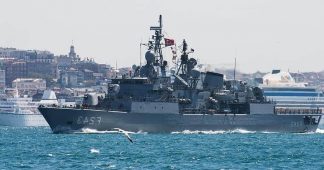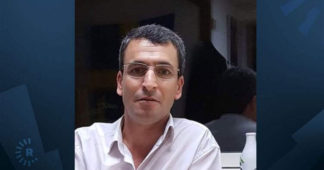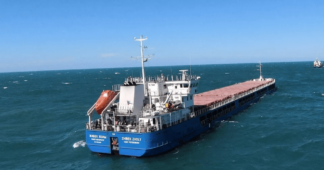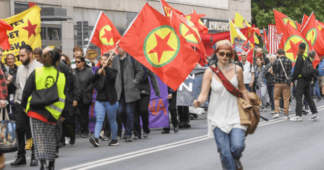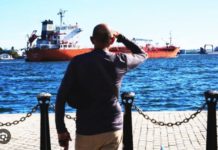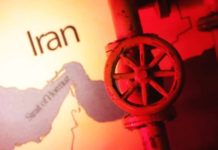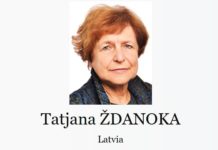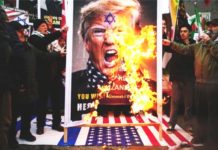Shay Gal*
Nov 5, 2025
Brussels sanctions Moscow within hours yet avoids calling Ankara what it is—a state occupying EU soil. If Europe cannot protect its own, its sovereignty is an illusion
From Athens to Nicosia, from Brussels to NATO’s halls, Europe fixates on Moscow: tanks in Donbas, gas on Berlin, cyberattacks on Tallinn. A deeper challenge lies within: a NATO ally and EU hopeful whose grip on migration, energy, and defense now eclipses the Kremlin. The true front line is Greek and Cypriot.
The policy contrast is stark. The EU has adopted nineteen sanctions packages on Russia, the latest (October 23, 2025) banning Russian LNG and tightening “shadow-fleet” restrictions. Against Turkey, the response is largely symbolic. In 2022, Athens logged 11,258 airspace violations, including 234 overflights of inhabited islands, and 1,581 breaches of territorial waters—about thirty a day. Even after a fall to 1,172 in 2023, Greece still faced three intrusions daily. By contrast, NATO recorded roughly 300 Russian air interceptions in 2023, mostly in international airspace; border crossings such as a MiG-31 entering Estonia this September remain rare.
Russia isolated for its wars; Turkey indulged for its leverage.
Turkey’s influence rests on six levers Russia lacks: a NATO veto that can stall Baltic-Nordic planning; a migration grip via the 2016 EU–Turkey statement; control of TurkStream, the last active conduit for Russian pipeline gas into the EU; defense exports that bind European buyers to Ankara’s supply chain; state-backed DİTİB networks shaping Muslim communities in key member states; and permissive hubs used by sanctioned actors from Iran to the Houthis. Moscow coerces from the outside; Ankara manipulates from within. If Russia uses missiles, Turkey uses markets, ports, and votes.
Meanwhile, Cyprus remains 37 percent occupied, with 40,000 Turkish troops and UAVs from Geçitkale projecting into EU airspace, while illegal drilling continues despite the EU’s 2019 sanctions framework; the Bayraktar TB2s flown there are the same model now fielded by EU members such as Poland and, more recently, Croatia—an absurd supply-chain loop binding Europe to systems that surveil its own territory.
At sea, German-designed Type-214 submarines entered Turkish service in 2024, giving Ankara a stealth edge in the Aegean even as Berlin preaches restraint. Europe punishes Russia for nuclear adventurism, yet Akkuyu—built by Rosatom on Turkey’s Mediterranean coast—moves forward after Western suppliers withheld key components, forcing Turkey and Russia to source alternatives from China; first power has slipped beyond 2025. Turkey bought the S-400, was expelled from the F-35, yet still secured an F-16 modernization. By scale and frequency, Turkish pressure on EU territory now exceeds Russia’s on the Baltic front—Europe’s inversion captured in one line.
Across the twenty-three EU-NATO members, threat perception is fragmented. The east—Poland, the Baltic trio, Finland, Sweden—treats Russia as existential, spends up to 4.5 percent of GDP on defense, and buys Turkish drones pragmatically. The center-west—Germany, France, Italy, Spain, the Netherlands, Belgium, Luxembourg—speaks loudly on Moscow but treads softly with Ankara. Berlin co-builds submarines; Paris revives SAMP/T; Madrid keeps a Patriot battery in Türkiye since 2015 and, through Navantia’s work on TCG Anadolu and a 2025 HÜRJET deal, has woven itself into Turkish naval and aerospace supply chains. Hungary and Slovakia keep Russian gas and court Ankara. Last month’s Organization of Turkic States summit underlined the drift: Viktor Orbán attended as an observer praising Türkiye’s “bridging role,” while Ersin Tatar—leader of occupied northern Cyprus—was presented as a head of state, a near de facto recognition of an entity the EU deems illegal.
The SAFE program crystallizes the dilemma.
Launched in May 2025, SAFE is a €150 billion loan scheme for joint defense procurement (65 percent EU content, no third-country control). Nineteen states have sought €127 billion, with national plans due November 30.
The Commission confirmed Turkey’s interest, but unlike the UK and Canada—where the Council authorized talks—no mandate exists for Ankara. Greece and Cyprus drew a line: an occupying power cannot tap EU defense funds. President Christodoulides called the stance “formally adopted”; Prime Minister Mitsotakis warned that while Ankara keeps its Aegean casus belli, “SAFE participation is out of the question.”
Yet NATO chief Mark Rutte urged Brussels not to build “industrial barriers” against non-EU allies—even as he insisted that “Russia remains NATO’s long-term threat.” A military alliance leader lobbying a civil union to reward a state occupying EU soil: few images capture Europe’s inversion more clearly.
Up to 35 percent of each SAFE project may still involve non-EU suppliers under bilateral approvals. Ankara lobbies for “favorable terms”; Berlin publicly backs inclusion. Yet Article 16 empowers the Commission to exclude any state that threatens a member. SAFE was built to end dependence on Moscow, Beijing, and Washington—not to reproduce it with Ankara.
When Russia weaponizes energy, Europe condemns it; when Turkey does so through TurkStream or migration leverage, it is rebranded as “partnership.” Russia’s RT is banned across the EU, but Turkish state media and influence networks continue unchecked. Europe punishes the visible invader and indulges the familiar neighbor—until the internal threat outgrows the external.
Europe’s problem is not law but will.
Article 42(7)—the EU’s equivalent of NATO’s Article 5, binding rather than optional—was written for moments like this. Yet the Union repeats it as ritual and acts as if it never existed.
Brussels sanctions Moscow within hours yet avoids calling Ankara what it is—a state occupying EU soil. If Europe cannot protect its own, its sovereignty is an illusion. The real test lies not in Kaliningrad but in Europe’s capitals.
*Shay Gal is an Israeli expert in international politics, crisis management, and strategic communications. He advises governments and institutions worldwide on power relations, geopolitical strategy, and public diplomacy, focusing on how they shape policy and decision-making.
.
We remind our readers that publication of articles on our site does not mean that we agree with what is written. Our policy is to publish anything which we consider of interest, so as to assist our readers in forming their opinions. Sometimes we even publish articles with which we totally disagree, since we believe it is important for our readers to be informed on as wide a spectrum of views as possible.
